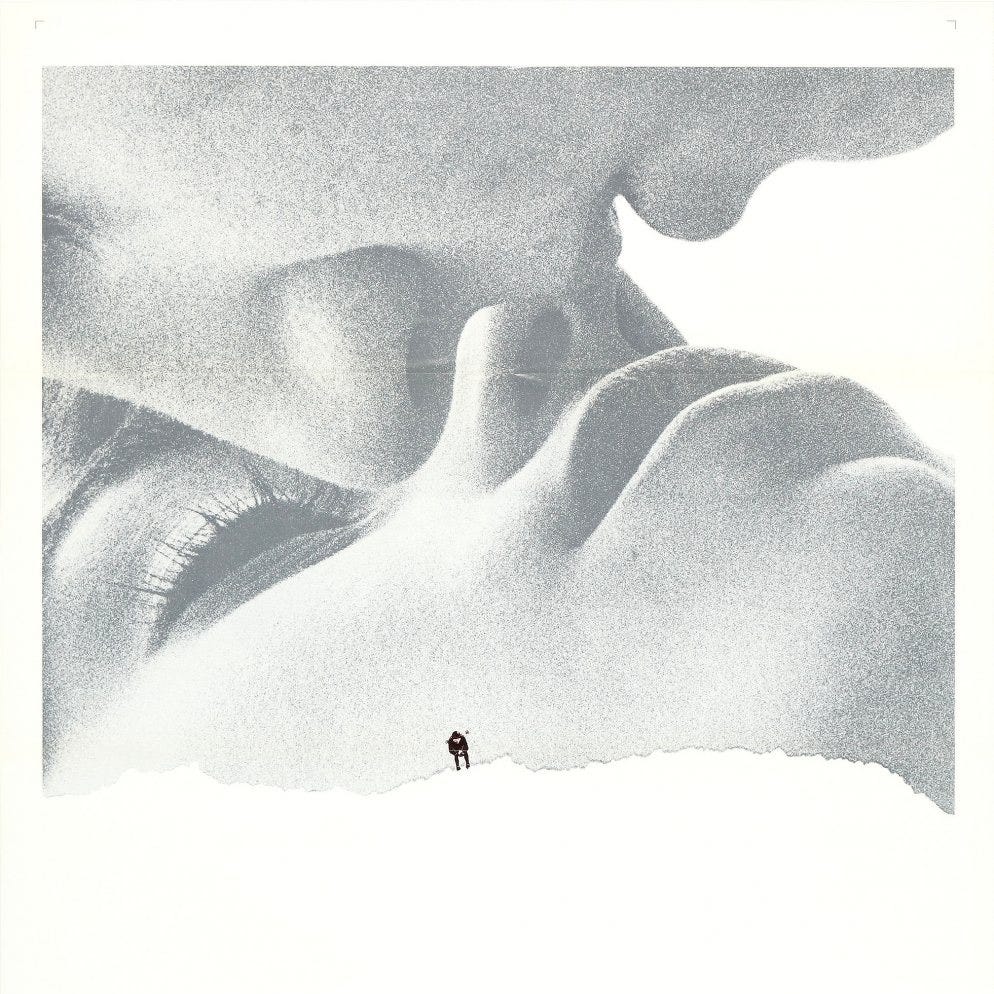Go Faster, Go, Go!
Robert Redford stars in 'Downhill Racer,' now on The Criterion Channel.
60s Flashback: Barely a month after Butch Cassidy and the Sundance Kid hit theaters in 1969, and 15 years before he played a baseball player in The Natural, Robert Redford portrayed an athlete aspiring to compete in the Winter Olympics.
His character, Chappellet, hails from the small mountain town of Idaho Springs, Colorado, where his father (Walter Stroud) openly wonders why his son is so eager to spend years training without getting paid for it. His son feebly offers the promise that the real pay-off will come after he wins a Gold Medal in the Olympics, though even he doesn't seem to believe what he's saying.
Besides, what drives the kid -- if we can call the 33-year-old Redford a kid -- is a mystery to himself. From all outward appearances, Chappellet competes as a downhill skier because he can; he's more in love with the idea of competition than the competition itself, as he demonstrates early on, when he resists the idea of competing in a European race at all, because his starting position is so poor.
His spoiled attitude is picked up on immediately by his coach, Claire (Gene Hackman), who spends as much time pleading for financial support from potential sponsors as he does in doling out critical analysis of his skiers' abilities. Claire tries to push Chappellet, but the kid resists and flashes his championship prowess anyway, quickly becoming one of the USA national ski team's stars.
As I write this, the Winter Olympics are underway in Beijing, China, so Downhill Racer serves as a reminder of what it was like when the athletes were expected to be truly amateur. Chappellet and his mates are not treated like royalty in the two years of competition leading up to the Olympics. They stay in decent, not great, hotels, but that's OK, because they're focused on skiing.
Except for the romantically-inclined Chappellet, who takes a fancy to the well-heeled Carole (Camilla Sparv), and carries on with her as the team travels to various stops on the European tour. The affair is obvious to all, but she is privileged and European, so the working-class American Chappellet really shouldn't expect anything, and he doesn't, yet he still yearns for more than what he gets.
Making his feature debut after years of experience directing episodic television shows, Michael Ritchie gives a documentary feel to romantic and sports-movie tropes. What the film captures extraordinarily well is the competitive spirit that lies deep within Chappellet's soul, which drives him to the point that he is never in control of his own actions in life. Or, at least, he has allowed that competitive spirit to drive out his other, lesser instincts.
In 1968, the enterprising Reford and a small crew visited the Winter Olympics to shoot footage without official permission, according to AFI Catalog, and then edited the film with assistants into a 15-minute "pilot film," which he then presented to Paramount executive Charlie Bludorn, who then gave Redford the green light for a feature and a budget of $1 million, only a third of what Roman Polanski has estimated the budget to be when he was in consideration to direct the year before.
Fledgling producer Redford's company, Wildwood International, is credited on the film, which was filmed entirely on location in Europe and in Colorado. Ritchie filmed both real-life World Cup races as well as staged races. Many more production details can be found at AFI Catalog, as well as details about the film's original literary source, linked above.
Downhill Racer feels like a whooshing skier flying by at top speed. Director Michael Ritchie's third film, The Candidate, also starred Redford, and his fourth is the very special Smile, for which I've already expressed my undying love. Ritchie would go on to make two more sports-themed movies in the 1970s, The Bad News Bears and Semi-Tough, as well as Wildcats in the 1980s, and The Scout in the 1990s, which are all as different from Downhill Racer as can be, yet all are tied together in their examination of the competitive spirit, however or wherever it burns. [The Criterion Channel]


